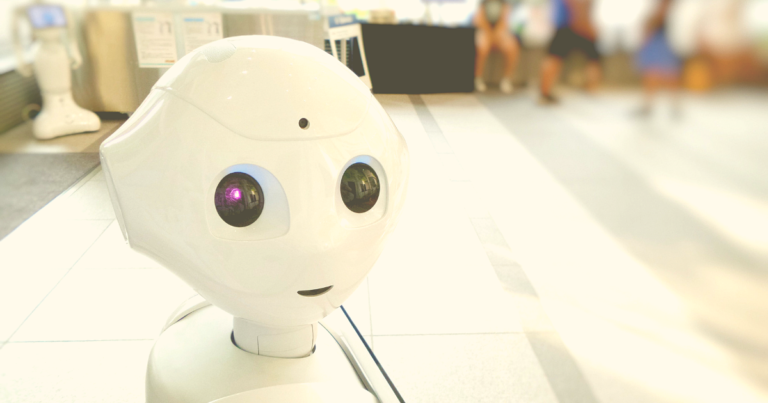How will it look for us to have Artificial Intelligence in the future of digital marketing? Artificial Intelligence is an exciting, futuristic term but in reality, it encapsulates a variety of technologies and algorithms that already exist in today’s world.
The mind, influenced by Hollywood, may first jump to evil AI robots destroying mankind or digital assistants like in the movie “Her” (with Scarlett Johansson voicing a personable AI). But the fact is artificial intelligence will, and already has, taken on many different forms.
What exactly is artificial intelligence?
Stanford University defines it as:
“Artificial Intelligence (AI) is a science and a set of computational technologies that are inspired by—but typically operate quite differently from—the ways people use their nervous systems and bodies to sense, learn, reason, and take action.”
To put it in more technical terms: AI often refers to voice/speech/image recognition as well as machine learning.
Are you thinking of Cortana, Alexa, and Siri? These are all chatbots powered by AI. They can already act as personal assistants in a way. They tell you the weather, send texts for you, and remind you of appointments. These bot personalities can respond and converse with you.
But AI can take many forms besides digital assistants:
- Self driving cars are AI. Yes, autonomous cars means the car is in control and doesn’t need any human to direct it. This says a lot about the algorithms developed for the skills to drive–such as vision and quick responsiveness to sudden obstacles or dangers on the road.
- Your unique recommendations on Netflix are configured with AI software. Now, the company is also using AI to compress video streams – resulting in faster, higher quality viewing for subscribers.
- Same with Pandora’s complex music system. Instead of associating songs with other artists in the genre, their tech analyzes the actual musical structure of a song and plays other similar sounding songs. There are literally hundreds of different elements by which a song can be analyzed.
- The Nest Thermostat, bought out by Google a few years ago, is a smart home device which learns your heating and cooling preferences then provides them without any programming needed. It is smart enough to adapt itself to both your life and the weather.
What will the future look like with artificial intelligence?
What will artificial intelligence in digital marketing look from an everyday user standpoint? Well, you’ve probably already heard the inevitability of self driving cars in the near future.
On a smaller scale, perhaps we won’t need so many apps on our phones in the future. Instead, we will allow AI assistants to navigate and report back the information for us.
How will artificial intelligence impact content marketing?
AI doesn’t mean the end of content marketing work done by humans. Rather, it will become another highly valued tool in the arsenal. Using AI-generated content marketing only wouldn’t be enough by itself to get the best possible results.
To do so, you need a real person with an innate understanding of other humans and the intelligence to properly analyze the marketing data.
AI auto-pilot isn’t the ultimate answer. Rather it’s about utilizing AI strategically in your marketing.
How exactly can Artificial Intelligence in digital marketing make a difference to marketers?
AI isn’t going to replace human marketers but assist them to overtake the time consuming or mechanical tasks involved with marketing and subsequent research.
Marketing is going in the direction of working with the algorithms and utilizing AI for the technical aspects:
- AI can transform data into discernible information at a much faster rate than humans can. For example, AI can scour data to find when your ideal customers are most active, their shopping behaviors and patterns, and what platforms they use online. By processing large amounts of data, AI can save marketers valuable time. Time that can then go to analyzing the data reports for insights. Marketers can interpret all this information to make better decisions of who to market to at the right time and place.
- AI can help with predictive analytics and to predict the buying habits of customers and how likely they are to purchase from you once or even multiple times.
- Lead scoring done by AI can help so companies can devote time to the hottest leads and be more efficient in sales and saving time.
- AI technology can help to target ads better through machine learning algorithms, allowing the best possible placement of your ad.
- AI generated content could work well with data specific content such as financial reports or sporting events. But content “written” by AI can’t mimic the human voice in terms of talent, coherency, or relatability. You would want a human to write the relatable social media posts or “advice and tips” type blogs that bear a certain tone of voice.
- AI can help with email acquisition and more effective email marketing campaigns.
- AI chatbots can speed up customer service questions and make inquiring more convenient for customers.
Step up your digital marketing by taking advantage of the Intrix Free Website Audit, and learn how your website’s digital presence can improve.


